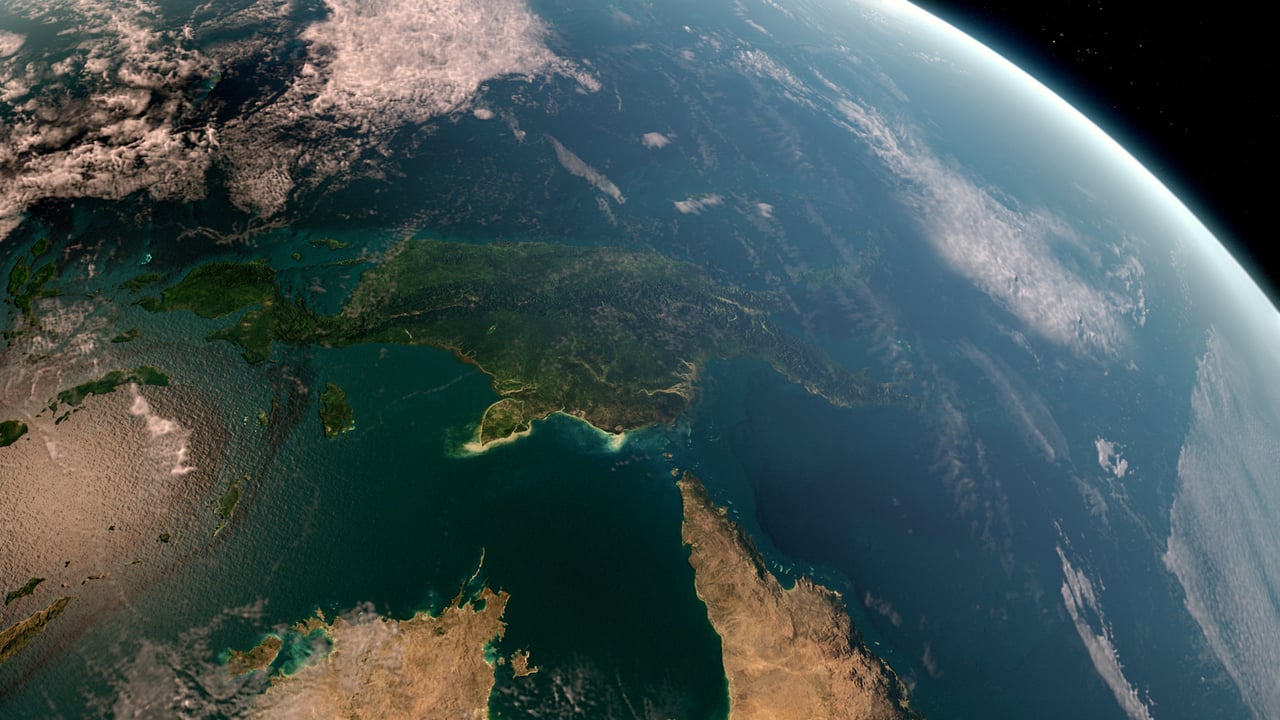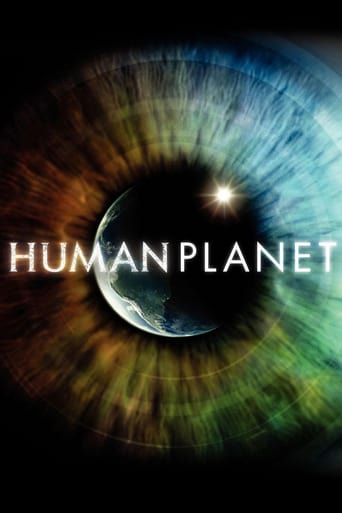

Fantastic!
... View Moredisgusting, overrated, pointless
... View Morebrilliant actors, brilliant editing
... View MoreAll that we are seeing on the screen is happening with real people, real action sequences in the background, forcing the eye to watch as if we were there.
... View MoreAmazing! Intriguing! Spectacular! These are a few words to describe BBC's eight-part documentary that looks at the most adaptable, intelligence form of life: the human. A form of life that is everywhere around us, but they present it in ways we never would have thought of. The most intelligent form of life and they explain some of the reasons why. The only form of life to conquer every environment on earth and they explain why. BBC Human Planet looks at the main ecospheres of the environment on earth; Oceans, Deserts, Artics, Jungles, Mountains, Grasslands, Rivers, and Cities. BBC did an excellent job of taking the basic aspects of every culture of the world, such as water, food, and shelter. They took these basic aspects of culture and life and looked at how people meet these needs in the various ecospheres of the world. They take each of these aspects and take a very in depth look at them as an aspect of culture. They include a wide variety of ethnic groups and how their cultures meet these basic requirements. These cultures range from very primitive to extremely developed. Different ways of providing food you will learn about from the Dorobo of South Kenya and their way of stealing lion's kills; the Kazakh of Mongolia hunting with eagles; the people of Northern Greenland's way of hunting auks; and the people of New York City, US planting gardens on top of high rise towers. The different ways people interact with water you will see from the goose barnacle collectors of Spain; the whale hunters on Lembata, Indonesia; and the fish divers of Philippines. BBC in each ecosphere also includes an element of how they live in shelters and homes. They also explore various cultures in their rituals, festivals, and ceremonies. They do a great job of weaving in how the culture is affected by the environment. They show how the environment of certain areas of the world is changing thus affecting the culture. BBC also looks at how western influence and modernization is greatly influencing cultures in the world. BBC did an excellent job in Human Planet of exploring the world and giving an in-depth view at cultures and how they are affected by the environment. It also looked at how these cultures are rapidly being influenced by outside factors. It is an excellent series to watch and get an in depth look at various cultures of the world.
... View MoreI managed to access this 8-episode series on Netflix streaming movies. John Hurt narrates and does it so well, his enunciation is impeccable and adds nicely to the presentation.What they have done here is develop a series of approximately 45- minute episodes, presumably to play (with commercials) in a 60- minute TV session. Each episode is on a distinctly different aspect of our planet Earth. It starts with "Oceans - Into the Blue" and goes on with such diverse topics as the Arctic, the Desert, the Trees, the Mountains, and ending up with Urban living.In most of the episodes it takes us to places we likely know little or nothing about, and would likely never visit. The sound and cinematography are first-rate and the topics are fascinating. Every episode focuses on one or several cultures that live and survive off the sea or land in ways that most of us could never imagine. One of the best documentaries I have ever had the pleasure of watching. Our Earth and the people in it are fascinating!The last episode focuses on urban life and is quite a contrast to the others. Where we see many remote, indigenous tribes living off the land, where nothing goes to waste, in our urban areas we are very wasteful, both food and energy. It is a cautionary message, we need to take care of our planet Earth or we may destroy it. In addition are separate 5 to 10 minutes features for each of the 8 episodes, showing what the filming crews had to go through to get some of the spectacular shots we see throughout. For me, a long-time photographer, those short documentaries are equally interesting. On Netflix streaming they are contained in a separate program.
... View MoreBeautiful photography and the commentator has a good voice, but the plot was so exaggerated that it became intolerable. Everything is ultimate: "THE MOST..." dangerous, fatal, life threatening, hostile. Nearly every story had two threads, each obviously scripted to be overly dramatic, and destined to collide.I am sad to see this subject saturated with this content, as it will probably out shadow better alternatives. It was a big letdown compared to other recent BBC nature content.Stopped watching after three episodes, and only kept going for so long because of the excellent photography.
... View MoreBBC's epic eight-part documentary series Human Planet is a fascinating celebration of humanity's ability to adapt to all environments across the globe, from the comfort of modern cities to the outright hostility of jungles, oceans, and the frozen wastes. Typical of the BBC, the footage contained in each episode is some of the most spectacular yet to be filmed, taking full advantage of improvements in filming technology and accessibility to remote regions. Each episode (covering Oceans, Deserts, Arctic, Jungles, Mountains, Grasslands, Rivers, and Cities) tells several stories relating to how communities survive in their particular environments, and the lengths people go to live in some truly difficult places is at times humbling and deeply admirable. Where Human Planet shines most is when it focuses its gaze on the more remote people of our planet. Whether displaying the tribal courting rituals of the Wodaabe people in Niger, the mussel gatherers of Arctic Canada, or the monkey breastfeeding of the Awá Guajá in the Amazon, each episode manages to highlight the remarkable existences carved by communities well outside of our seemingly civilized world. Actor John Hurt delivers the narration with appropriate gravitas, delicately pitching whatever tone is most appropriate for the images on screen, whether dramatic or whimsical. That said, Hurt is merely an acceptable second choice, and Human Planet could certainly have been improved had legendary documentarian David Attenborough been involved. Whatever the reasons for Attenborough's absence, it also in a sense highlights what many people will no doubt have problems with concerning this series. With previous series such as Planet Earth or Life, the BBC have removed humanity's presence from their footage as much as possible, yet here we are placed at the centre of the narrative, and, while certainly interesting, pointing the cameras at us isn't always the most pleasant feeling. Human Planet pulls back the curtain a little on previous BBC nature shows, and the sense that there are always people lurking just outside the frame, ready to swoop in and exploit the natural world is a little unsettling. For the most part, the indigenous people the series focuses on are taking what they need out of necessity rather than greed, but there are hints about the destruction we are causing to our planet. The final episode, Cities, is the most illuminating in terms of the damaging effects of humanity's spread, but clearly this was not the intended purpose for this series. There is much unsaid, but in the end Human Planet is a worthy addition to the BBC's vast catalogue of nature documentary series, and has infinitely more value than the majority of what's on our TV screens today.tinribs27.wordpress.com
... View More